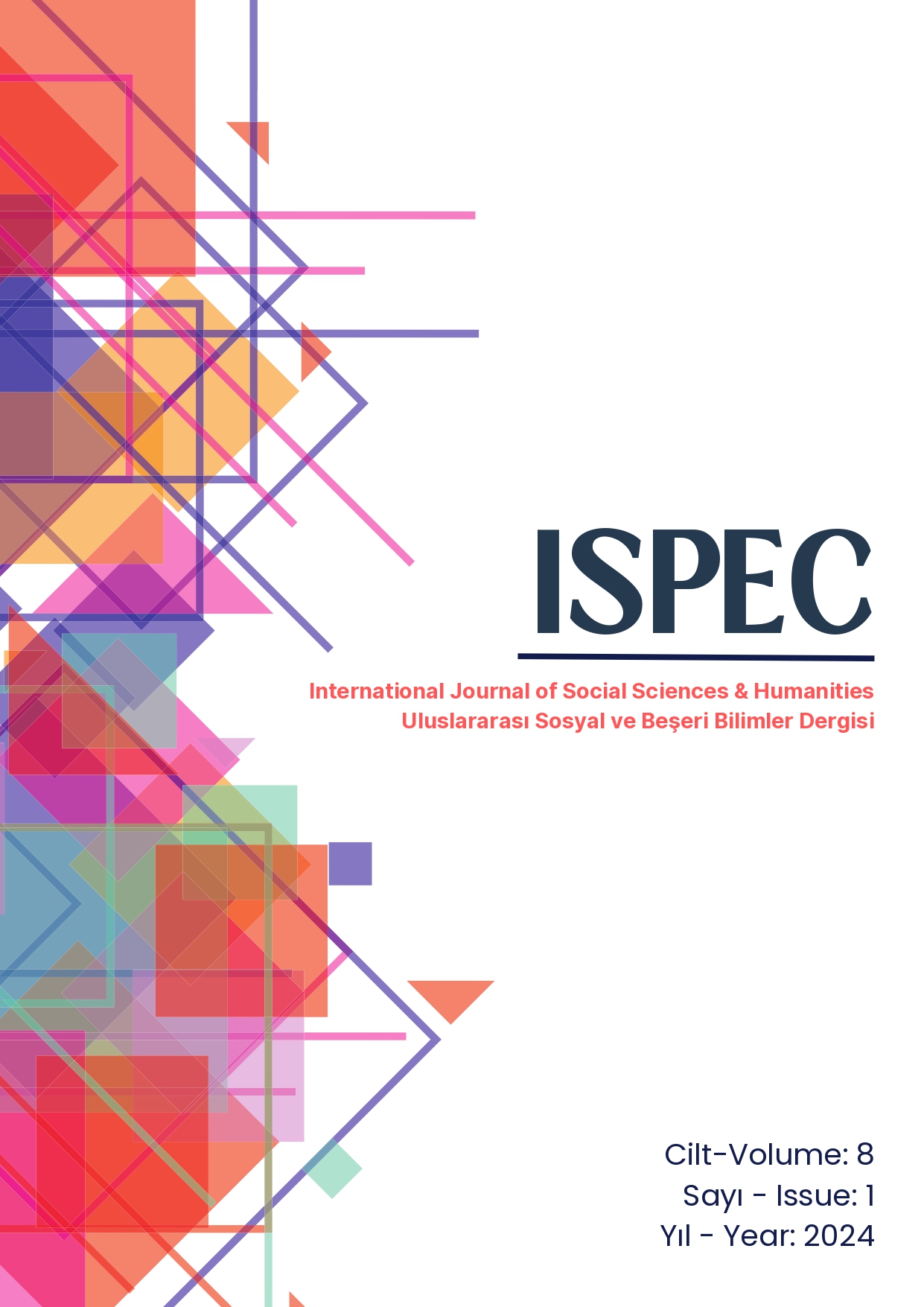The Role of Women in Teaching Turkish Culture to Young People
DOI:
https://doi.org/10.5281/zenodo.10806466Keywords:
Education, Turkish World, Women, culture, Communication, Cultural TransferAbstract
It is estimated that the number of Turks living in the world is around 350 million. So much so that there is no continent in the world where Turks do not live. On the other hand, it is possible to talk about a common culture that includes all Turks. Although these traditions undergo some changes as they move away from the central region or encounter cultures in other regions, they essentially contain fundamental similarities. For example, red ribbons tied to rings at engagements and to wedding dresses at weddings always represent good luck and fortune. The horse is a must for all Turks. Respecting elders is essential. Women have had a respected place in Turks since the beginning. These traditions have been passed down from generation to generation and have survived to the present day. When evaluated in general, it can be seen that the main factor in this cultural transfer is women. Because women are prominent and important in the transmission of culture due to their role in the family and their influence on children. This situation has not changed today. Women have an important role in building society on solid foundations and maintaining the family structure in a healthy way. In this study, cultural similarities in the Turkish World will be revealed and the role of women in transferring this culture to future generations will be emphasized. In the study, in addition to the previous theoretical studies on the subject, the results of field research were presented with a cultural anthropological perspective and research method, and the universe of the study was limited to the Turkish World.
References
Acar, H. (2019). İnsan&İnsan, Yıl/Year 6, Sayı/ 21, Yaz/Summer.
Adanır, O. (2007). Kültür ve Zihniyet, Doğu Batı Dergisi, Doğu Batı Yayınları, Sayı: 23: İstanbul.
Alpar, G. (2020). Türkiye’nin Güvenliğini Anlamak, Nobel Yayınları: Ankara.
Alpar, G. (2023). “Özbekistan Coğrafyası ile Bağlantıları Yeniden Kurmak: Fergana ve Taşkent Bölgesi İzlenimleri”, Kültür, İletişim, Diplomasi, Palet Yayınları: Konya.
Bauman, Z. (2001). Bireyselleşmiş Toplum, Çev. Yavuz Alogan, Ayrıntı Yayınları: İstanbul.
Erten, E. (2016). “Antik Yazarlarda Bir İskit Kraliçesi: Tomyris”, Mediterranean Journal of Humanities, VI/2.
Fukuyama, F. (1999). Büyük Çözülme, İnsan Doğası ve Toplumsal Düzenin Yeniden Oluşturulması, Çev. Hasan Kaya, Profil Yayıncılık: İstanbul.
Gezon, L., Kottak, C. (2016). Kültür, Çev. Editörü: Akile Gürsoy, İkinci Basımdan Çeviri, Nobel Yayınları: Ankara.
Guenon, Rene. Modern Dünyanın Bunalımı, Çev. Mahmut Kanık, Hece Yayınları: Ankara.
Gündüz, A. (2012). “Tarihi Süreç İçerisinde Türk Toplumunda ve Devletlerinde Kadının Yeri ve Önemi”, The Journal of Academic Social Science Studies, 5/5.
Güvenç, Bozkurt. (1999). İnsan ve Kültür, Remzi Kitapevi: İstanbul.
Kongar, Emre. (1990). İstanbul Halkın Günlük yaşam Biçimi ve Tüketici Davranışları Araştırması, İstanbul Ticaret Odası.
McKinnon, S. (2005). On Kingship and Mariage: A critique of the Genetic and Gender Calculus of Evolutionary Psychology, In Complexities: Beyond Nature and Nurture, The University o Chicago Press: Chicago.
Tellioğlu, İ. (2016). İslam Öncesi Türk Toplumunda Kadının Konumu Üzerine, Ankara Üniversitesi Türkiyat Araştırmaları Enstitüsü Dergisi, 55: Ankara.
Togan, V. Z. (1960). Türk Türkistan: İstanbul.
Tümertekin Erol & Özgüç Nazmiye. (2004). Beşerî Coğrafya, İnsan-Kültür-Mekân, Çantay Kitabevi: İstanbul.
Türkdoğan, O. (2007). Türk Toplumunun Temel Dinamikleri, Kum Saati Yayınları: İstanbul.
Yaman, E. (2012). Değerler Eğitimi, Akçay Yayınları: Ankara.
Yıldırım, K. (2012). Başlangıcından II. Yüzyılın Ortalarına Kadar Doğu Türkistan ile Çin Münasebetlerine Genel Bir Bakış, Trakya Üniversitesi Edebiyat Fakültesi Dergisi, Cilt: 2, Sayı: 3, Ocak-2012, s. 123-156 Trakya Üniversitesi Edebiyat Fakültesi Dergisi, Cilt: 2, Sayı: 3, Ocak-2012, s. 123-156.
Yılmaz, A. (2004). “Türk Kültüründe Kadın”, Milli Folklor Dergisi (61), Ankara.
Downloads
Published
How to Cite
Issue
Section
License
Copyright (c) 2024 ISPEC International Journal of Social Sciences & Humanities

This work is licensed under a Creative Commons Attribution-NonCommercial-NoDerivatives 4.0 International License.






